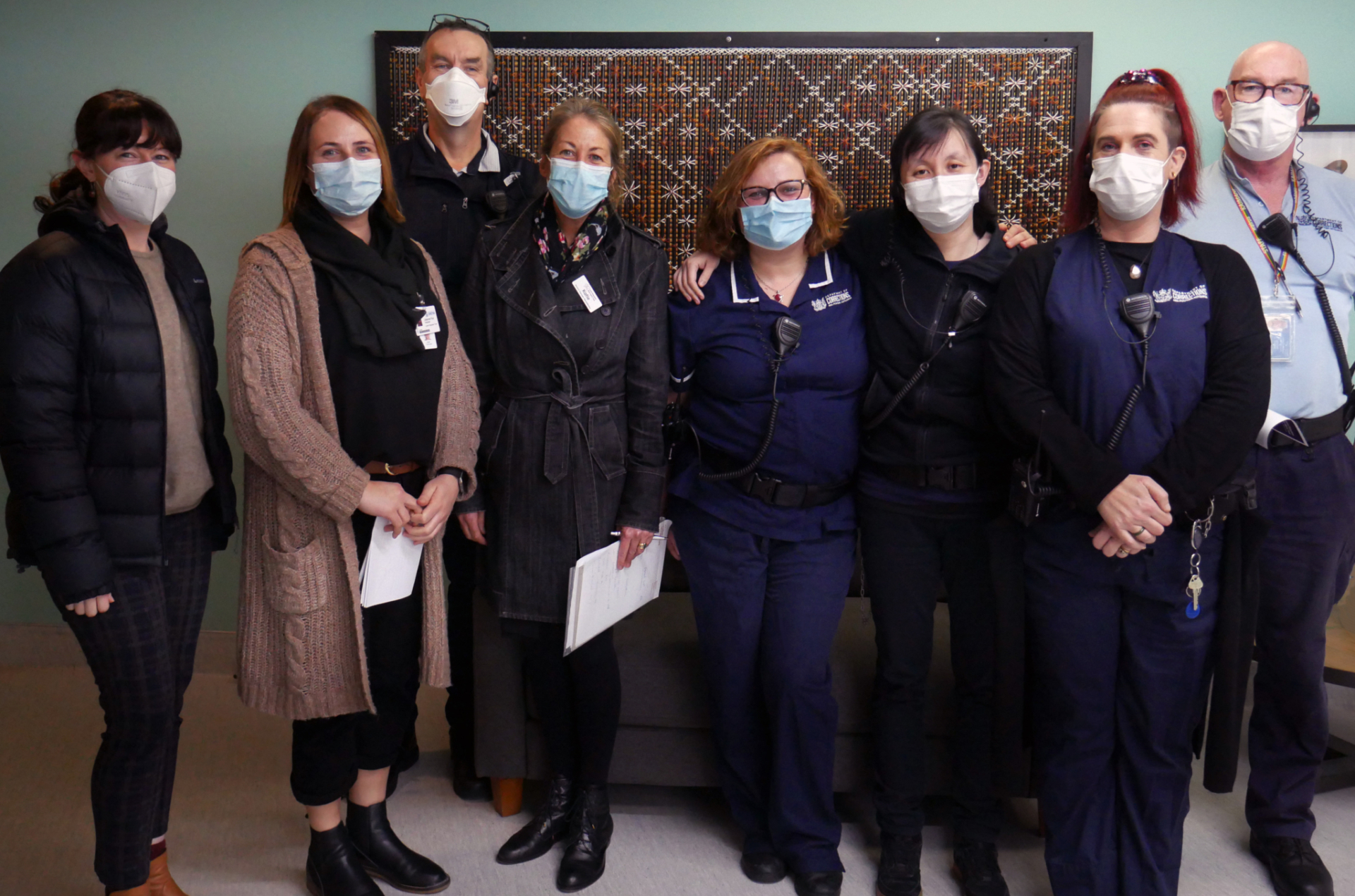New programme assessing brain injuries and cognitive issues at Christchurch Women’s Prison
The Laura Fergusson Brain Injury Trust has now been involved with providing services in Corrections since 2017 via grant funding as well as via ACC referrals. We are pleased to be able to highlight the incidence of TBI and other cognitive issues within the Justice System, to help find more tailored approaches for rehab and training.
With our experienced team of Allied Health Therapists and Clinical Psychologists/Neuropsychologists, we can hopefully help with upskilling the Corrections teams and network with community agencies on how best to work with those with cognitive issues in and outside the wire.
A new programme, funded by a National Lotteries Community Grant, is underway at Christchurch Women’s Prison (CWP), in partnership with Laura Fergusson Brain Injury Trust (LFBIT). The programme aims to identify and provide summaries of cognitive abilities, diagnoses, history, and recommendations for intervention and rehabilitation for people with brain injuries and other cognitive difficulties.
The Laura Fergusson Brain Injury Trust has previously received Lotteries grant funding to work with Christchurch Men’s Prison, assessing rangatahi in the youth unit (aged 25 and under) for Traumatic Brain Injuries (TBI) and other cognitive issues. Research has identified that over 60% of New Zealand men in prison have suffered a TBI during their lifetime, causing a range of cognitive and emotional difficulties that often appear as behavioural or management issues within prison. Now, LFBIT are looking to assess and support women in the Aotearoa Corrections system.
“It’s really important for us to be able to identify women with TBI or other cognitive issues,” says CWP Health Centre Manager, Yuxi Ward. “These types of injuries or issues often cause confusion, poor memory and other cognitive problems – symptoms that are really good for our teams to be aware of, in order to best manage people’s health and rehabilitation in prison.”
The new assessment and education programme will see LFBIT Neuropsychologist Leanne Mathews visiting the site weekly to undertake neuropsychological assessments. This includes providing detailed reports around each person’s strengths, weakness and recommendations for education and care. Leanne also meets with each participant following her assessment, to discuss their diagnosis, why they have trouble with certain processes, and what they excel at.
“It’s amazing to see people realising, ‘wow, I’m not stupid, I just struggled because of this disability’,” Leanne says. “It normalises people’s differences and resolves so much shame and pain, empowering people with the knowledge of what they are good at.”
The CWP Health Team are currently referring women they believe would benefit from an assessment, but are also encouraging wāhine to self-refer, and for other custodial staff to suggest women they suspect may have TBI or a cognitive issue.
“It’s hard to know what programmes will work best for someone, until you know what they’re capable of,” say LFBIT General Manager for Rehabilitation, Katie Hodge. “For instance, if we diagnose someone with foetal alcohol syndrome or ADHD, there are certain programmes that won’t be suitable for the way they learn and think. With this knowledge, the team at CWP can put women on a path for rehabilitation that works with their cognitive needs, not against them.”
“Having the recommendations from these assessments will be massively beneficial for the way we manage and provide support for specific women in prison,” says Yuxi. “For example, if our Corrections Officers or Programme Facilitators know that someone has difficulty recalling information, they can provide written guidance alongside their conversations.”
The entire team at CWP are thrilled to be welcoming the LFBIT on-site, with Principal Case Manager, Jason Carlyle remembering one woman who was unable to be released into the community, until funding for neuropsychological assessment was arranged with LFBIT.
“What they found means she has been able to be supported and managed in a way that gives her the accommodation and wrap-around support needed for her to be safe in the community,” says Jason. “If this hadn’t had happened, I really do believe she would still be in prison.”
The assessment and education programme has been funded for 12 months, with LFBIT also looking into further support services, including rehabilitation programmes for women on-site, and the potential for long-term funding when individuals leave prison.
“This programme is such an important step for the health and rehabilitation of the women in our prison,” says Yuxi. “We’re really grateful to be partnering with the Laura Fergusson Brain Injury Trust team delivering this programme for the next year.”
PHOTO (L-R): LFBIT Neuropsychologist, Leanne Mathews; LFBIT Physiotherapist, Jo Fox; Principal Case Manager, Jason Carlyle; LFBIT General Manager Rehabilitation, Katie Hodge; CWP Nurse, Andrea Bujokova; CWP Health Centre Manager, Yuxi Ward; CWP Nurse, Porcelina Spring; and CWP Residential Manager, Richard Shuker


